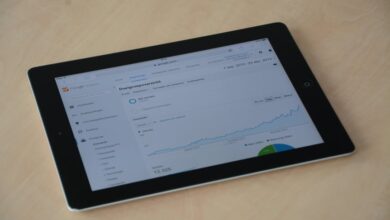Financial Efficiency in Bookkeeping 5015022940

Financial efficiency in bookkeeping is a critical aspect that influences a company’s overall performance. By streamlining processes and reducing errors, organizations can significantly enhance their financial reporting accuracy. This transformation often involves adopting advanced tools and technologies. However, the challenge remains in measuring the true impact of these changes. Understanding how to effectively evaluate these outcomes can lead to further insights into optimizing financial practices. What strategies might emerge from this analysis?
The Importance of Financial Efficiency in Bookkeeping
Although many businesses recognize the necessity of bookkeeping, the significance of financial efficiency in this process is often undervalued.
Financial efficiency encompasses cost reduction and process optimization, leading to more streamlined operations. By prioritizing these elements, companies can enhance their financial health, freeing resources for innovation and growth.
Ultimately, an efficient bookkeeping system serves as a foundation for sustainable business success.
Key Strategies for Streamlining Bookkeeping Processes
Streamlining bookkeeping processes is essential for enhancing financial efficiency and minimizing operational costs.
Implementing automated reconciliation reduces manual errors and saves time, while effective expense categorization ensures clarity in financial reporting.
These strategies foster a more agile financial environment, allowing organizations to adapt quickly to changes.
Ultimately, embracing these methods leads to greater control and freedom in financial management.
Tools and Technology to Enhance Accuracy
Automated processes play a significant role in enhancing the accuracy of bookkeeping.
Cloud accounting solutions and automation software streamline data entry, reduce human error, and ensure real-time updates.
By leveraging these technologies, businesses can maintain precise financial records while freeing up resources for strategic decision-making.
Ultimately, this integration fosters a more efficient and reliable bookkeeping environment, essential for financial success.
Measuring Success: Evaluating Financial Efficiency Outcomes
How can businesses effectively measure the outcomes of their financial efficiency initiatives?
Implementing a rigorous cost benefit analysis can illuminate the financial impact of various strategies.
Additionally, establishing clear performance metrics enables organizations to track improvements in productivity and resource allocation.
Conclusion
In conclusion, achieving financial efficiency in bookkeeping is not merely an operational goal but a strategic imperative for businesses seeking long-term success. By employing automated solutions and leveraging cloud technology, organizations can significantly enhance their financial reporting accuracy and reduce costs. As businesses navigate an increasingly complex economic landscape, one must ask: how can they afford not to prioritize financial efficiency? Embracing these practices fosters innovation and positions companies for sustainable growth and stability in the future.



